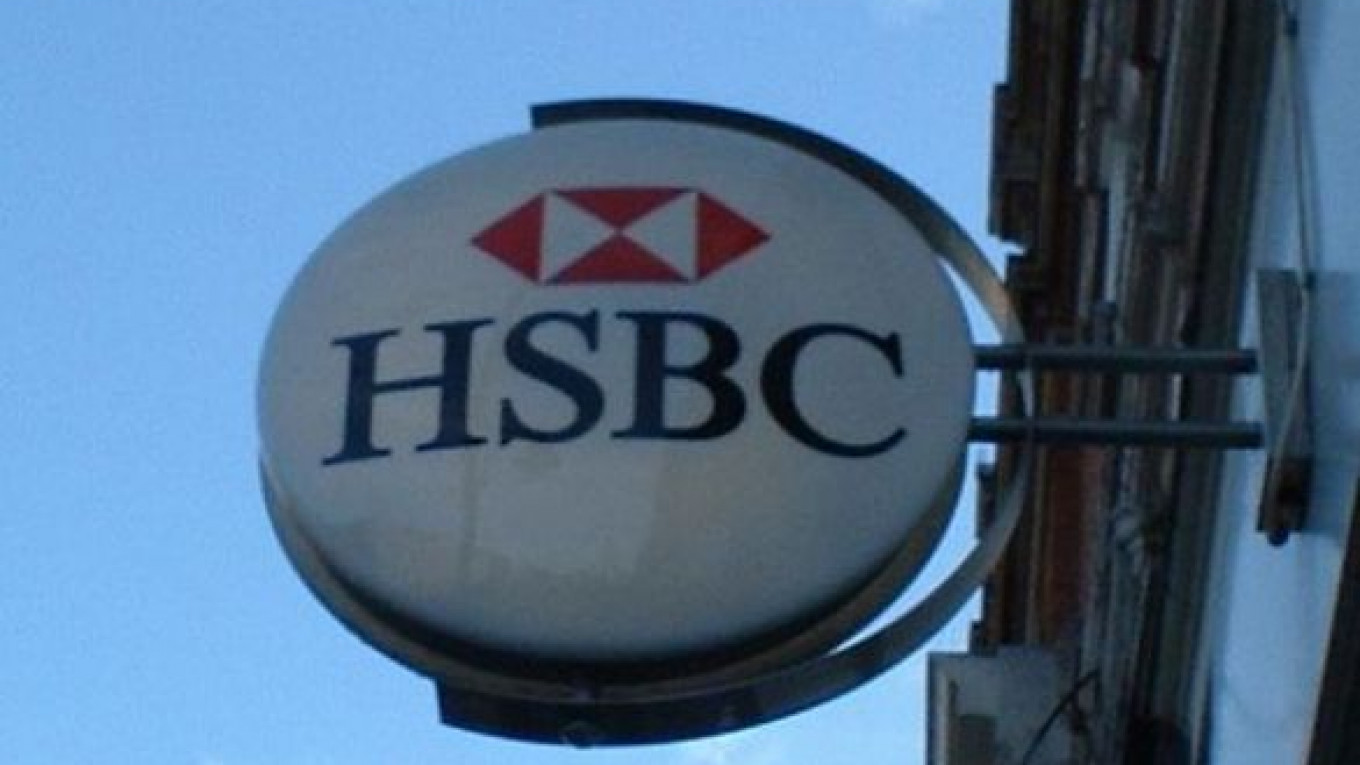Despite a lavish opening party in 2009 and a commitment to "aggressive" growth, HSBC's dreams for the Russian retail banking market ended Monday with a tacit acknowledgement by the bank that it could not compete against state-owned heavyweights like VTB and Sberbank.
HSBC — which promotes itself as "the world's local bank" ?€” said all retail banking operations would be closed immediately for new business and that existing accounts would be shut down according to contractual obligations.
"It's clear that the strongest opportunity for HSBC in Russia lies in servicing corporate and institutional clients," Huseyin Ozkaya, HSBC Russia's chief executive, said in a statement. "That's why we've made the decision to exit our retail business and reduce our private banking presence to a representative office."
The announcement confirmed months of speculation that the international financial giant was on its way out. It is the second foreign bank to take the step in three months. Barclays, with about 400,000 clients in Russia, announced that it was selling its Russian retail and com¬mercial arm in February.
HSBC's pullout comes amid increasing assertiveness from VTB and Sberbank, which, boosted by almost unlimited capital reserves, have a competitive edge over private competitors.
State-controlled banking institutions occupy about 60 percent of the Russian market.
Sberbank CEO German Gref boasted about the bank's position as the country's largest lender in an announcement Monday that he would lead a team of bank executives to the United States this week to court investors ahead of the expected privatization of a 7.6 percent stake later this year or in 2012. "We can make a profit. We are exceeding analysts' expectations," Gref said in a statement.
Unlike many other foreign banks entering the Russian market, HSBC elected to follow a path of organic growth, rather than acquisition.
The only major bank that has made a success of this strategy is Citibank, which entered the retail market in 2002.
Without acquisitions, HSBC struggled to carve out a space for itself in the Russian retail banking business.
"When the tempo of growth is not fast, it's much more complicated for new players to find themselves a niche," said Svetlana Kovalskaya, a financial analyst at Renaissance Capital.
"The market is complicated now for both Russian and foreign banks in terms of competition," she added.
JPMorgan Russia's chief executive, Jeffrey Costello, told The Moscow Times last week that "compression" was to be expected in the retail banking sector and was likely to spread to investment banking as well.
HSBC currently has four branches in Moscow and one in St. Petersburg. In the first quarter of 2011, individual clients placed 6.4 billion rubles ($230 million) in the bank ?€” by which measure HSBC ranks 127th nationally.
HSBC is not among the top 20 foreign banks operating in Russia ?€” the list of which is topped by UniCredit Bank (seventh overall in Russia with $21.8 billion in assets) and includes Austria's Raiffeisenbank and France's Societe Generale. Barclays occupied 20th place.
HSBC opened its personal financial services in Russia in June 2009 and targeted the high-end market through its HSBC Premier and HSBC Plus facilities. HSBC Premier was a global banking service requiring an average monthly balance of at least 1.5 million rubles ($53,800), while HSBC Plus required a deposit of at least 75,000 rubles ($2,700).
"Some people have asked whether we're too late [entering the Russian market]," said then-HSBC chief executive Stuart Lawson in 2009. "I don't think we are."
Nevertheless, commentators on Monday questioned whether HSBC had ever had a sufficient appreciation of the demanding Russian business environment.
"Doing business in Russia is immensely difficult," said Timothy Stubbs, head of law firm Salans' banking and finance practice. "HSBC may have underestimated the amount of energy that they had to put into growing operations."
But the timing of HSBC's decision, based purely on an analysis of the Russian market, is strange ?€” the company opened its first branches during the financial crisis and is now closing them during a period of high oil prices and ongoing growth in the financial sector.
The answer may lie in HSBC's global strategy. HSBC's new international head, Stuart Gulliver, who took up the post in January, has told associates that he will initiate radical restructuring within the company, including a potential multibillion-dollar cost-cutting scheme, the Financial Times reported last week. Downsizing could include some of the 87 markets worldwide where the bank operates.
The decision to cap expansion at five branches in Moscow and St. Petersburg may have contributed to Russian HSBC's candidature for closure, a top banker close to the matter told The Moscow Times.
"It's their own dynamics rather than the market dynamics," he said. "Russia just happens to be caught up in this."
A Message from The Moscow Times:
Dear readers,
We are facing unprecedented challenges. Russia's Prosecutor General's Office has designated The Moscow Times as an "undesirable" organization, criminalizing our work and putting our staff at risk of prosecution. This follows our earlier unjust labeling as a "foreign agent."
These actions are direct attempts to silence independent journalism in Russia. The authorities claim our work "discredits the decisions of the Russian leadership." We see things differently: we strive to provide accurate, unbiased reporting on Russia.
We, the journalists of The Moscow Times, refuse to be silenced. But to continue our work, we need your help.
Your support, no matter how small, makes a world of difference. If you can, please support us monthly starting from just $2. It's quick to set up, and every contribution makes a significant impact.
By supporting The Moscow Times, you're defending open, independent journalism in the face of repression. Thank you for standing with us.
Remind me later.


